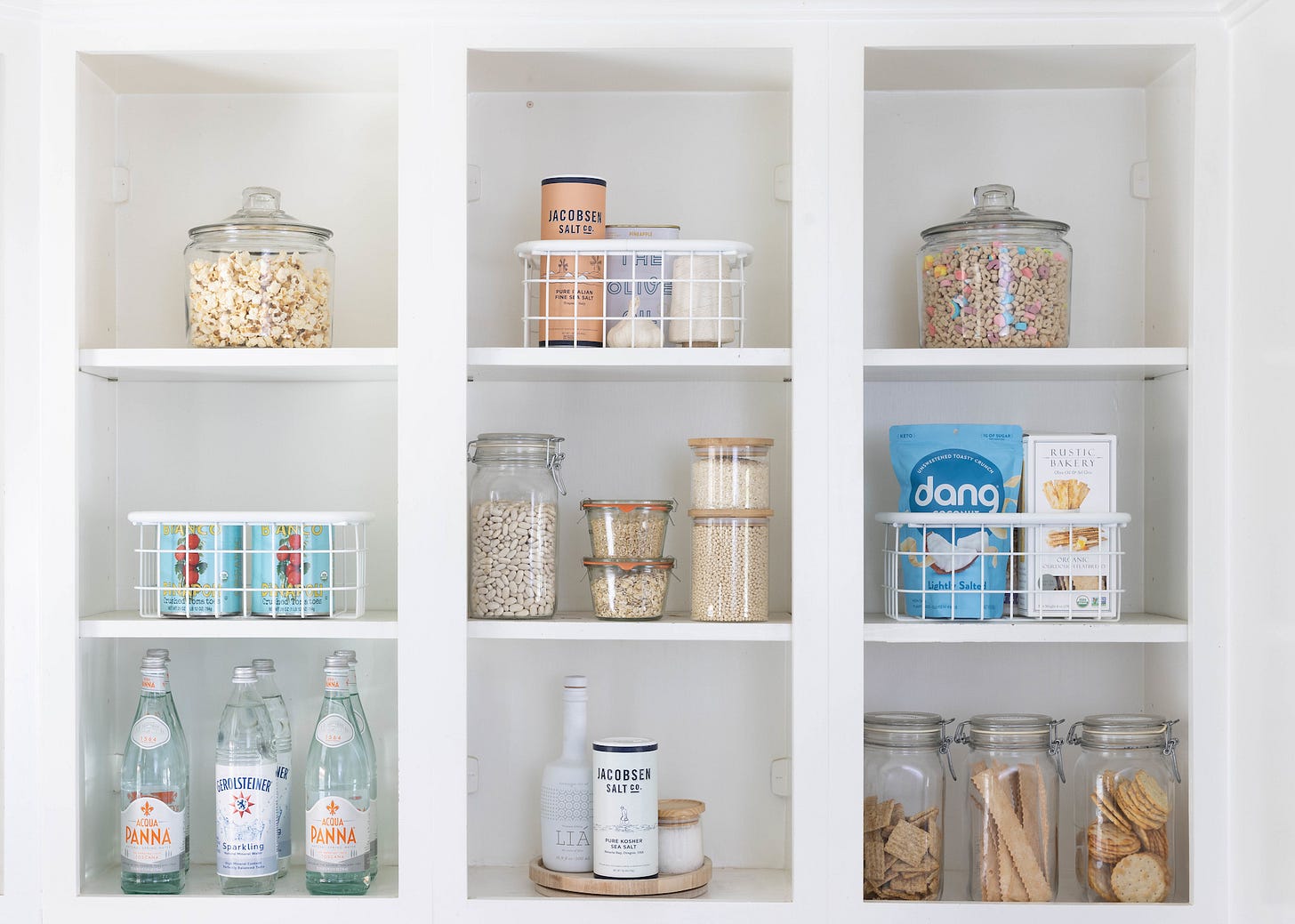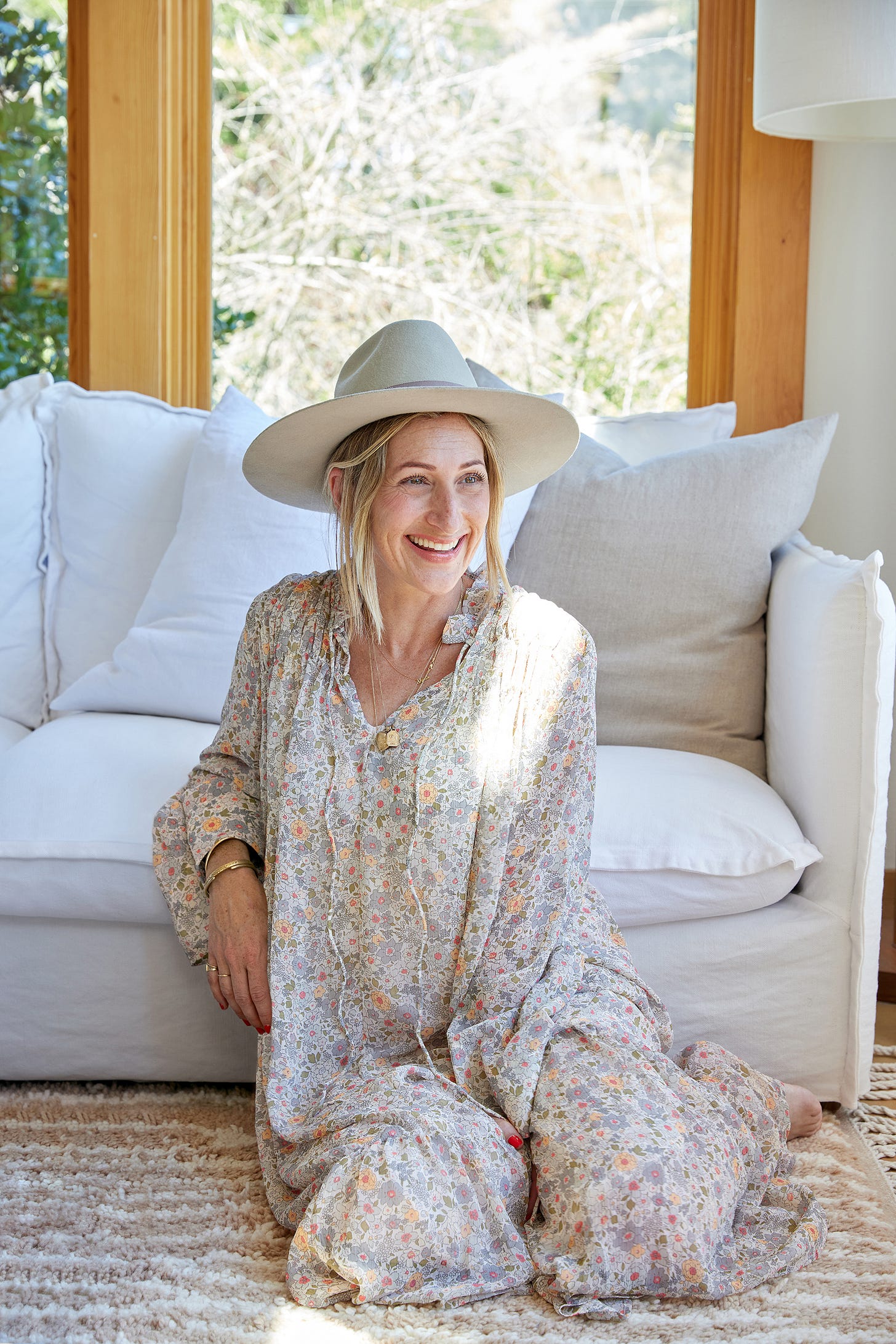"Minimalism is not about restriction.": A Conversation with Shira Gill
It's time for a new interview! Next up: SHIRA GILL, author of Minimalista, Organized Living, and the forthcoming LifeStyled.
Our interview series features interesting people with something to say that the world needs hearing. Let me know what you think—we’ll continue to experiment and evolve along the way. 🙏
Introducing Shira Gill
I first met Shira Gill in San Francisco, at a writer’s event hosted by Substack. It turned out we have several friends—and even a publisher—in common.
Since then I’ve been reading her newsletter, following her on Instagram, and all-around appreciating her work.
Here are a few highlights from Shira’s bio:
Shira Gill is a globally recognized home organizing expert, bestselling author, and speaker. She has inspired thousands of people to clear clutter from their homes and lives, and developed a process and toolkit that applies to anyone, regardless of budget, space, or lifestyle.
Shira is the author of Minimalista, Organized Living, and the forthcoming LifeStyled (coming this December), and has been featured in 100+ print and media outlets including Good Morning America, Vogue, Dwell, Better Homes & Gardens, House Beautiful, Architectural Digest, Domino, Forbes, Goop, Harper's Bazaar, HGTV, Today, InStyle, Parents, Real Simple, and The New York Times.
Naturally, we’re more interested in the person behind the impressive bio. And since this is 🌻 A Year of Mental Health, I’m interested in how people think about wellbeing in general.
So let’s have some questions and answers with Shira! (There’s also a short audio recording from her—scroll down for that.)
Qs & As with Shira
What does mental health and wellbeing mean to you?
To me, mental health and wellbeing is all about our ability to maintain a strong psychological and emotional foundation in spite of the inevitable stressors and adversity we all face.
As an inherently sensitive and anxious person, I’ve curated my own go-to mental health toolkit (fresh air, nature, walking, writing, solo time) that I rely on to help me reset and regulate my nervous system whenever I feel overwhelmed or out of balance.
What is your primary or most important message?
Minimalism is an amazing tool that anyone can leverage to radically improve their lives.
There is a common misconception that minimalism is synonymous with living in a stark white box with two t-shirts and a single fork. The truth is minimalism isn’t a prescriptive, one-size-fits-all formula. It is not a form of punishment, and it does not have to be austere or ascetic.
We live in a culture predicated on the idea that the solution always lies in doing or acquiring more, but in my life and career I have found this premise to be false. More stuff can trigger a fleeting dopamine hit (yay, new fun thing!), but more often leads to stress, anxiety, regret, consumer debt, and a heap of boxes to break down.
As a busy working mom who craves order and simplicity, but also really loves pretty things, I have cultivated and customized a flexible minimalist philosophy that works for my real life.
Owning less has enabled me to create a home that feels like a sanctuary, to host friends and family with ease, and to save massive amounts of time, money, and energy. Doing less (radically constraining my focus) has enabled me to successfully tackle my big goals, including writing and publishing three books in three years.
My personal minimalist evolution has led me to subtract a fair amount of extraneous stuff from my home and life, but I’ve also added some new things into the mix. Better things. Higher quality things. More meaningful things. The version of minimalism I practice and teach confronts excess—it does not deprive you of the things you actually enjoy.
Minimalism is not about restriction - it’s about intentionality and freedom. It’s about clarifying what’s adding value to your life, and letting go of the things that don’t. It’s about asking: what do I want to fill my home and life with on purpose?
What’s something contrarian or highly unusual that you passionately believe?
The idea that some people are born with the “organizing gene,” and others are just hopeless is utter nonsense. Over the course of my career as a professional organizer I have amassed a massive amount of evidence that anyone, at any age, can learn the skill of organization. Yes, even you. Especially you.
Organization really boils down to these two foundational principles:
One: Group similar items together in categories (like with like).
Two: Store each category in ONE specific designated home.
The biggest problem I see again and again is that people try to overcomplicate their organizing efforts with complex systems that are not realistic to maintain. Feel free to ditch the color coding, micro-organizing, and alphabetizing (unless you enjoy it) in favor of simple, intuitive systems that make sense to you.
Shira’s Audio Recording 🎙️
I usually ask our interviewees to make a short audio recording in addition to the written questions. This isn’t a long podcast interview, it’s just two minutes long—so you don’t want to skip it. Here’s the one from Shira! ⬇️
Okay, back to some more Qs and recommendations!
What’s difficult for you right now? What are you struggling with?
I am terrible at resting, and I have trouble detaching myself from hustle culture. Whenever a big project wraps (like finishing a book), I don’t know what to do with myself (aside from panic that I don’t have another big project to launch immediately) and generally have a hard time leaning into the upside of slower seasons.
Note from Chris: Me too! The comedown after finishing a book or another big project is real. I’ve learned that I need to prepare for transition times, and also to accept that I just might be a little sad for a while when something ends.
What is a simple thing (or 2-3 simple things) we can do to be better?
No one enjoys a good brain dump like I do, but I recommend replacing your lengthy to-do list with a prioritized list of your three non-negotiables for the day. Ask yourself: if I only accomplish 3 things today, which are the most valuable and important?
Identify your biggest time wasters (scrolling social media, mindless tv, etc.) and commit to setting firm time limits on those activities and filling the rest of your free time with positive alternatives that will move you closer to your goals.
Try a purchase pause (I suggest a full month) where you don’t buy anything non-essential. Jot down anything you want to buy, and revisit your list at the end of the month to see if you still want everything.
Lastly, what are a few things you’d like to recommend to our community?
Reading: Slow Productivity - the new book by Cal Newport (author of Digital Minimalism and Deep Work), The Life Brief by Bonnie Wan, and Tranquility by Tuesday by Laura Vanderkam.
Note from Chris: Cal and Laura are friends of mine as well. Check out Laura’s newsletter, Vanderhacks, and her TWO podcasts.
Listening: Comedy nerds, unite! I have become borderline obsessed with the Working It Out Podcast with Mike Birbiglia and friends. Listen as top comedians talk through new material, deconstruct jokes, and speak about the complexities of working in comedy.
Best Clutter-Free Gift: Ship the best specialty and comfort foods from across the US straight to your door via GoldBelly. Browse options like deep dish pizza from Chicago, bagels from Brooklyn, and BBQ from Memphis.
Big Thanks to Shira!
Be sure to subscribe to her newsletter, The Minimalista Edit. You can also now pre-order her next book, LifeStyled, which comes out in December.
Tip: Pre-orders help authors a lot, so if you ever want to support someone with a book coming out, buy it sooner rather than later. 📌
Finally, let me know if you were able to read the interview! More of them are in the works, so be sure you’re subscribed—and stay tuned. 🙏







Yes, I love the message that minimalism isn't necessarily about one certain aesthetic (like two white t-shirts) but just about owning less and being more intentionally with what you do have!
Thanks so much for having me, Chris! Love the community you've created here, and so happy to ne a part of it. x